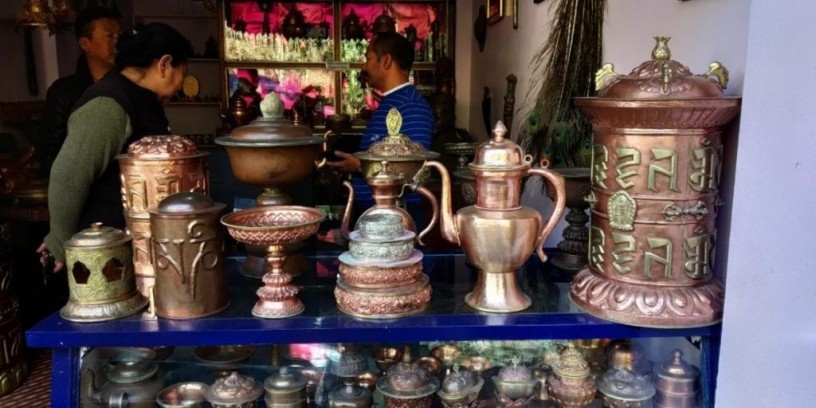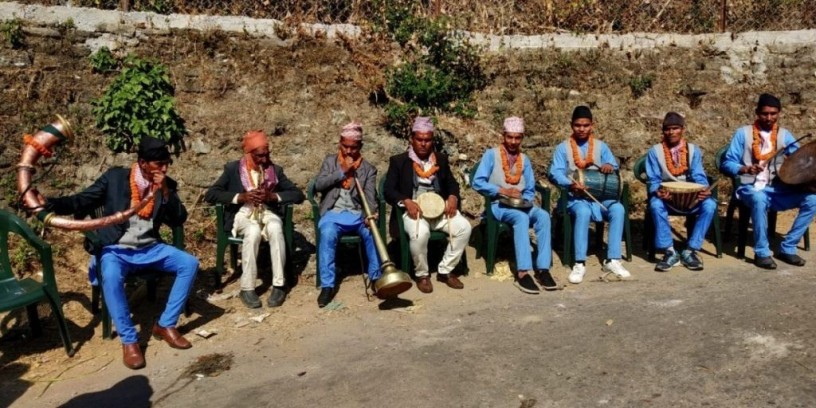The Sarki Caste in Nepal Professional
Aug 25th, 2023 at 04:15 Blogs Kathmandu 1.4K views Reference: 695Location: Kathmandu
Price: Contact us
The Sarki Caste in Nepal: Crafting Tradition and Progress
Introduction
Nepal is a land of diverse cultures, languages, and traditions. One of the integral components of its rich tapestry is the Sarki caste. The Sarki people, known for their skill in leatherwork and shoemaking, have a unique place in Nepal's social and economic landscape. This article delves into the history, culture, and challenges faced by the Sarki caste in contemporary Nepal.
Historical Significance
The Sarki caste is traditionally associated with the craft of leatherwork and shoemaking. They have played a vital role in providing footwear and leather products to Nepali society for generations. Their skills have been indispensable, especially in a country where agriculture and walking are primary modes of life.
Cultural Richness
The Sarki community boasts a rich cultural heritage. Their craftsmanship is not just about utility but is also a form of artistry passed down through generations. The making of leather goods, from intricate shoes to belts and bags, is a testament to their skill and dedication. In addition to their craftsmanship, Sarki culture includes traditional songs, dances, and festivals. These cultural expressions help preserve their unique identity and provide a sense of belonging within the wider Nepali society.
Challenges and Progress
Despite their cultural contributions, the Sarki caste has faced various challenges over the years. One of the most significant challenges has been social discrimination. Historically, they, like other marginalized groups in Nepal, were subject to discrimination and exclusion. However, legal measures and changing social attitudes have aimed to address this issue. Nepal's constitution, which was promulgated in 2015, explicitly prohibits caste-based discrimination and untouchability practices. Additionally, affirmative action measures have been implemented to promote social inclusion and uplift marginalized communities, including the Sarki caste.
Economic Opportunities
In recent years, some Sarki individuals and families have been able to leverage their craftsmanship to access economic opportunities beyond traditional leatherwork. For instance, young Sarki entrepreneurs have entered the fashion industry, creating contemporary leather products that are sought after both domestically and internationally. Moreover, Nepal's growing tourism sector has opened up avenues for Sarki artisans to showcase their products to a global audience. Traditional handmade leather items have become popular souvenirs for tourists visiting Nepal.
Conclusion
The Sarki caste in Nepal, with its deep-rooted tradition of leatherwork and shoemaking, exemplifies the cultural diversity and resilience of the Nepali people. While challenges related to discrimination persist, there has been progress in addressing these issues through legal means and changing societal attitudes. Furthermore, the Sarki community is adapting to changing economic landscapes, demonstrating their ability to preserve their heritage while embracing modern opportunities. As Nepal continues to evolve socially and economically, it is crucial to recognize and celebrate the contributions of diverse communities like the Sarki caste, whose traditions and skills enrich the nation's cultural mosaic while contributing to its economic vitality. By supporting and empowering these communities, Nepal can further strengthen its commitment to equality, inclusivity, and diversity.







Thanks for good information